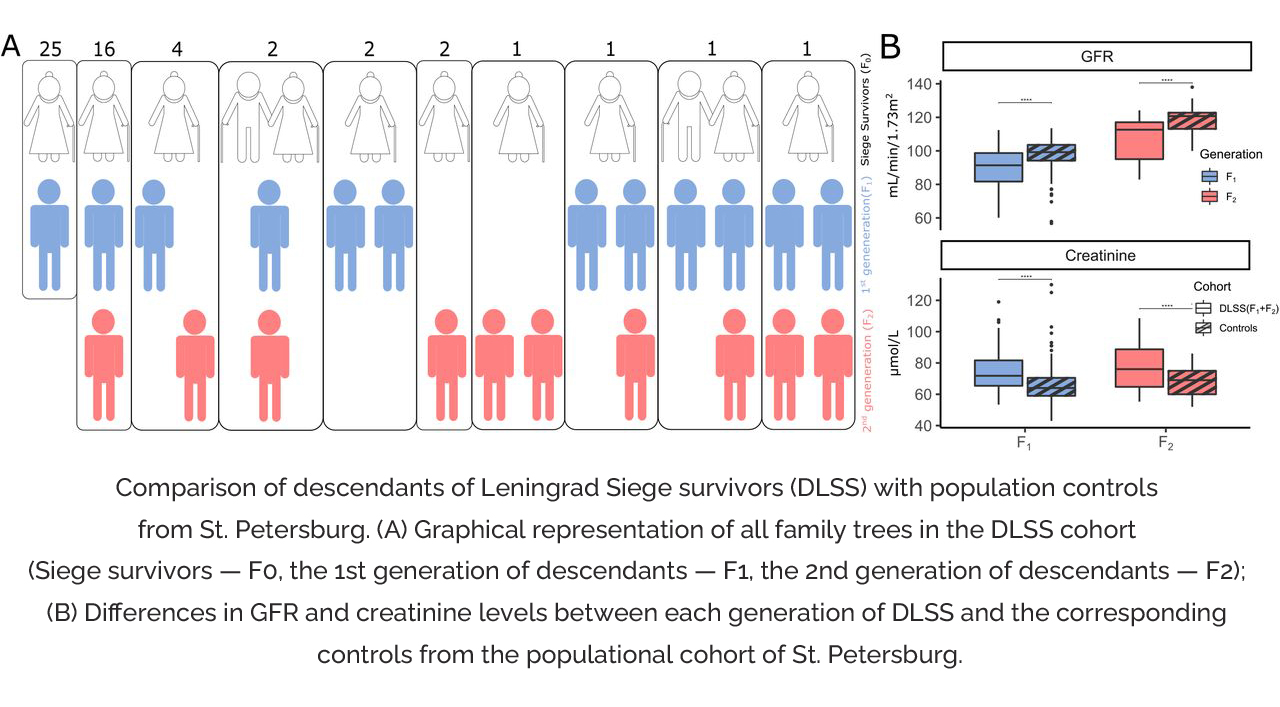
Specialists of the Population Genetics Research Laboratory of the WCRC for Personalized Medicine obtained the first results from the study comparing health of children and grandchildren of Leningrad siege survivors.
In recent decades, much research has focused on the theory of fetal programming of disease predisposition. The phenomenon of fetal programming suggests that environmental exposures (stress, malnutrition, air pollution) and certain behavioral habits of the mother (smoking, alcohol abuse, poor nutrition or overeating) during pregnancy lead to delayed consequences and the development of diseases in adulthood. Further study showed that some consequences of fetal programming can be transmitted to new generations, which can have both positive and adverse effects. Such adaptive effects are called transgenerational.
For more, please read the news of the WCRC for Personalized Medicine.
